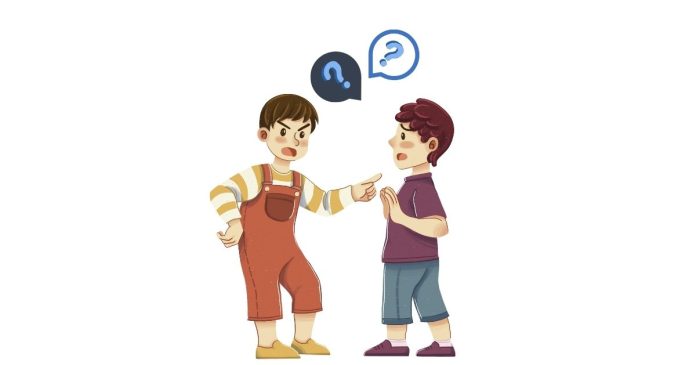A verbal security blanket refers to a verbal or linguistic habit or expression that a person uses to feel safe, comforted, or reassured in situations of uncertainty, anxiety, or stress. It’s similar to how a child might use a physical security blanket for comfort — something familiar and reliable to help them cope with challenges or new environments.
While security blankets in the physical sense provide emotional comfort, a verbal security blanket provides emotional or psychological comfort through words or phrases that serve as coping mechanisms. These verbal habits are often automatic and can be used consciously or unconsciously to navigate social or emotional situations.
Examples of Verbal Security Blankets
- Filler Words/Phrases:
- People often use filler words like “um,” “like,” “you know,” “basically,” or “literally” when they’re uncertain or nervous. These words can serve as a kind of pause or buffer while the speaker gathers their thoughts. Over time, these fillers can become ingrained in their speech patterns.
- Repetitive Phrases:
- Phrases such as “I’m not sure, but…” or “Honestly, I think…” may function as verbal security blankets. These phrases signal hesitation or self-reassurance before sharing an opinion or making a statement.
- Affirmations and Reassuring Statements:
- Some people use words of affirmation like “I understand,” “It’ll be okay,” or “Don’t worry about it” to comfort others (or themselves) when faced with discomfort or tension. These verbal reassurances can be a way of managing anxiety in social or emotional situations.
- Non-committal Language:
- Saying things like “I guess,” “Maybe,” or “I’m not sure” can act as a security blanket. This allows the person to avoid committing to a definite answer, thus reducing the perceived risk or pressure of being wrong.
Why Do People Use Verbal Security Blankets?
There are several psychological reasons why people might rely on verbal security blankets:
- Anxiety and Nervousness:
- When someone is anxious, they may use certain phrases or words to give themselves a sense of control or to manage the pressure they feel in a situation. Using familiar words can provide a sense of grounding when they feel unsure or nervous.
- Lack of Confidence:
- People who lack confidence in their speech, decision-making, or social interactions may use verbal security blankets as a way to “soften” their statements or opinions. It can be a protective mechanism against being judged or making mistakes.
- Avoidance of Conflict:
- Some individuals use non-committal language or repeated reassuring phrases to avoid potential conflict or discomfort. For example, saying “I’m not sure, but…” can make it easier to avoid making a definitive statement that might be disputed.
- Comfort in Familiarity:
- Similar to how some people have specific rituals or routines that provide comfort, using certain words or phrases can be comforting because they’re familiar. They become a part of the speaker’s identity and offer reassurance in stressful situations.
- Habit:
- Sometimes, verbal security blankets become ingrained as habitual ways of speaking. They might start as a response to anxiety but become part of one’s everyday communication style over time, even when there’s no actual need for comfort.
The Impact of Verbal Security Blankets
While verbal security blankets can offer comfort in the short term, they may also have certain negative consequences:
- Reduced Communication Clarity:
- Over-reliance on fillers or phrases like “you know” or “I guess” can make communication less clear and direct. It can sometimes come across as uncertain or lacking in confidence, even if the speaker has valuable insights.
- Perceived Lack of Authority:
- If someone constantly uses verbal security blankets, particularly in professional or authoritative settings, they might be perceived as less confident or authoritative. This could potentially impact how others view their expertise or leadership abilities.
- Habitual Nature:
- Over time, relying too much on verbal security blankets can make it harder to express oneself confidently and clearly. It may require conscious effort to break these habits and speak more directly.
How to Overcome or Replace Verbal Security Blankets
If someone recognizes that they are using verbal security blankets in a way that’s hindering their communication or self-confidence, there are several strategies they can try:
- Practice Mindful Speaking:
- Becoming aware of when and why certain filler words or phrases are being used is the first step in reducing their usage. Mindful speaking involves pausing and thinking before responding.
- Deep Breathing or Pauses:
- Taking a moment to breathe or pause before speaking can help replace fillers and give the speaker more time to collect their thoughts. It’s okay to take a few seconds of silence instead of filling the space with words that aren’t adding to the conversation.
- Building Confidence:
- Fostering confidence in one’s knowledge or decisions can help reduce the need for verbal security blankets. Feeling more comfortable and self-assured in a given situation can minimize the desire to hedge statements or use reassuring phrases.
- Seeking Feedback:
- Asking for constructive feedback from trusted colleagues, friends, or mentors can help someone become more aware of their verbal habits and how they can adjust them to be more clear and assertive.
Conclusion
A verbal security blanket functions as a comfort mechanism, helping individuals manage feelings of anxiety, uncertainty, or self-doubt in conversations. While these verbal habits can provide immediate relief in stressful moments, over-reliance on them can impact communication clarity and confidence. By understanding and addressing these verbal habits, individuals can improve their communication and become more self-assured in expressing themselves.


